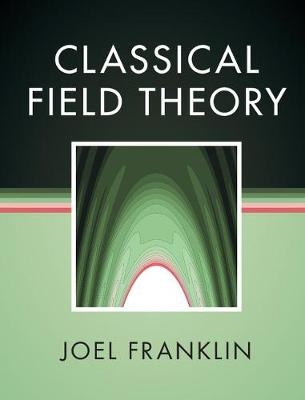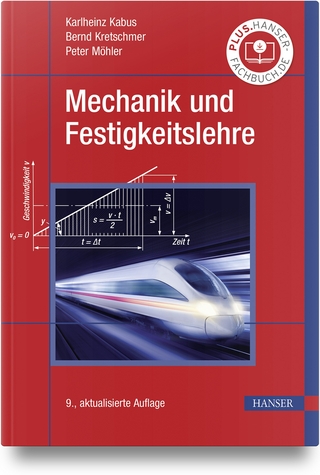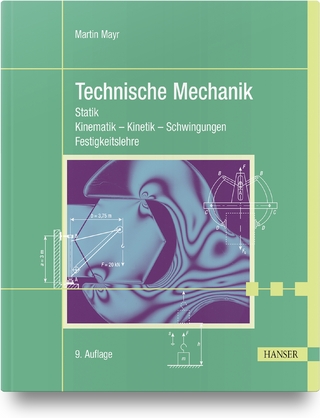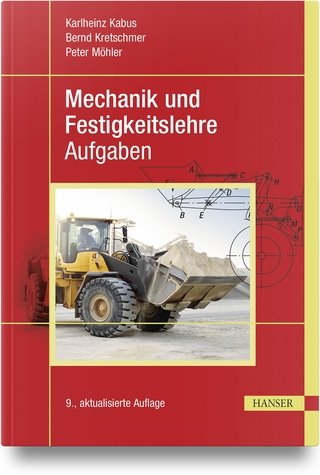
Classical Field Theory
Seiten
2017
Cambridge University Press (Verlag)
978-1-107-18961-4 (ISBN)
Cambridge University Press (Verlag)
978-1-107-18961-4 (ISBN)
A comprehensive introduction to the methods of, and physics describable by, classical field theory. Written for advanced undergraduate students, this book demonstrates a modern approach to model building with compelling examples to illustrate the structure of field theories and their physical predictions.
Classical field theory, which concerns the generation and interaction of fields, is a logical precursor to quantum field theory, and can be used to describe phenomena such as gravity and electromagnetism. Written for advanced undergraduates, and appropriate for graduate level classes, this book provides a comprehensive introduction to field theories, with a focus on their relativistic structural elements. Such structural notions enable a deeper understanding of Maxwell's equations, which lie at the heart of electromagnetism, and can also be applied to modern variants such as Chern–Simons and Born–Infeld. The structure of field theories and their physical predictions are illustrated with compelling examples, making this book perfect as a text in a dedicated field theory course, for self-study, or as a reference for those interested in classical field theory, advanced electromagnetism, or general relativity. Demonstrating a modern approach to model building, this text is also ideal for students of theoretical physics.
Classical field theory, which concerns the generation and interaction of fields, is a logical precursor to quantum field theory, and can be used to describe phenomena such as gravity and electromagnetism. Written for advanced undergraduates, and appropriate for graduate level classes, this book provides a comprehensive introduction to field theories, with a focus on their relativistic structural elements. Such structural notions enable a deeper understanding of Maxwell's equations, which lie at the heart of electromagnetism, and can also be applied to modern variants such as Chern–Simons and Born–Infeld. The structure of field theories and their physical predictions are illustrated with compelling examples, making this book perfect as a text in a dedicated field theory course, for self-study, or as a reference for those interested in classical field theory, advanced electromagnetism, or general relativity. Demonstrating a modern approach to model building, this text is also ideal for students of theoretical physics.
Joel Franklin is a Professor in the Physics Department of Reed College, Oregon. His work focuses on mathematical and computational methods with applications to classical mechanics, quantum mechanics, electrodynamics, general relativity, and modifications of general relativity. He is author of two previous titles: Advanced Mechanics and General Relativity (Cambridge, 2010) and Computational Methods for Physics (Cambridge, 2013).
Preface; Acknowledgements; 1. Special relativity; 2. Point particle fields; 3. Field lagrangians; 4. Gravity; Appendix A. Mathematical methods; Appendix B. Numerical methods; Appendix C. E&M from an action; References; Index.
| Erscheinungsdatum | 22.04.2017 |
|---|---|
| Zusatzinfo | Worked examples or Exercises; 45 Halftones, black and white; 19 Line drawings, black and white |
| Verlagsort | Cambridge |
| Sprache | englisch |
| Maße | 193 x 253 mm |
| Gewicht | 650 g |
| Themenwelt | Naturwissenschaften ► Physik / Astronomie ► Mechanik |
| Naturwissenschaften ► Physik / Astronomie ► Quantenphysik | |
| Naturwissenschaften ► Physik / Astronomie ► Relativitätstheorie | |
| Naturwissenschaften ► Physik / Astronomie ► Thermodynamik | |
| ISBN-10 | 1-107-18961-6 / 1107189616 |
| ISBN-13 | 978-1-107-18961-4 / 9781107189614 |
| Zustand | Neuware |
| Haben Sie eine Frage zum Produkt? |
Mehr entdecken
aus dem Bereich
aus dem Bereich
Statik - Kinematik - Kinetik - Schwingungen - Festigkeitslehre
Buch | Hardcover (2021)
Hanser, Carl (Verlag)
29,99 €


